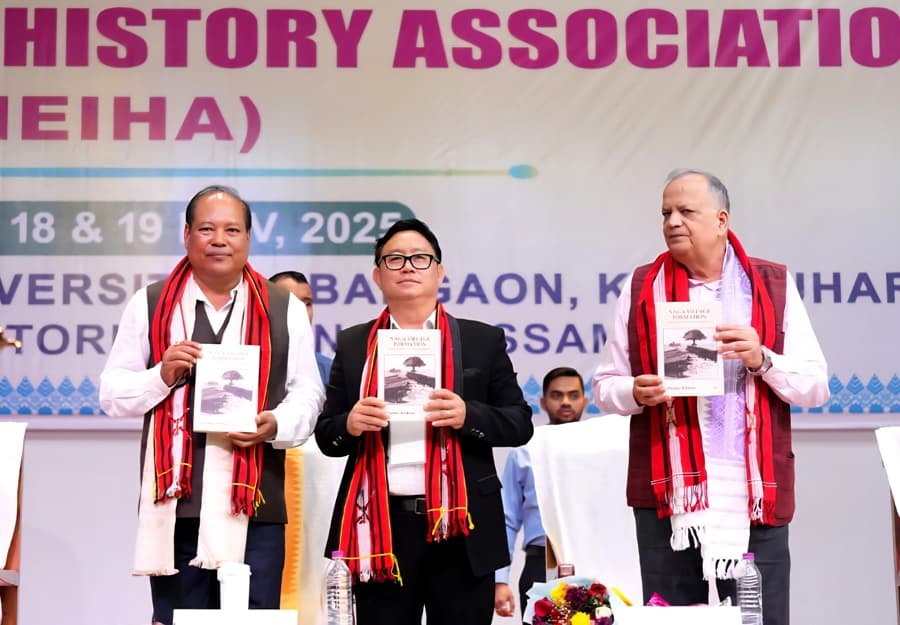MONDAY, NOVEMBER 17, 2025
- Home
- Book on Naga village formation launched at Bodoland University
Book on Naga village formation launched at Bodoland University
New book ‘Naga village formation: Oral history and archaeology,’ launched at Bodoland University.
Share

DIMAPUR — A book ‘Naga village formation: Oral history and archaeology,’ authored by Dr. Libemo Kithan, Associate Professor in the Department of History at Mount Tiyi College, Wokha, was released on Monday at Bodoland University, Kokrajhar, Assam.
The book was released by Speaker of Assam Legislative Assembly, Biswajit Daimary, during the 44th session of the North East India History Association (NEIHA), an update stated.
The book entails a multidisciplinary approach, combining oral history with an archaeological method, to determine the historical validity of the Naga migration and settlement.
The concept of place making, as well as theoretical assemblages, have been used to study the formation of Naga village.
The book focused on the Lotha Nagas' migration routes and settlement patterns, as well as how various sociopolitical and economic factors influenced traditional village formations, it stated.
The book reports on archaeological excavations carried out at the study sites to support the oral history of village formation, which aided in gathering information from various scientific lines of inquiry to provide a vivid picture of early sociopolitical and cultural history.
Also read: Ursuline Franciscan Sisters celebrate 50 years of service in the Northeast
A book ‘The Little Things’ release at Patkai Christian College
“The book reveals the radiocarbon date of the formation of Wokha village, which ranges from 900 to 1265 A.D., with a median probability year of 1103 A.D. This is the first antediluvian/primal discovery of the scientific date associated with village establishment in Nagaland,” it stated.
The study books into the day-to-day admin of traditional villages, exploring the roles of village chiefs and their teams. It examines cultural practices, economic activities, and religious life, aiming to decolonise Lotha village admin.
Key findings are summed up in the book's final chapter.
The ‘Book forward’ was written by Prof. Tiatoshi Jamir, Department of History & Archaeology, Nagaland University, who is also an executive member of World Archaeological Congress.
In his forward, Prof. jamir mentioned that, traditional stories relating to village formation and the rise of social complexities have also taken lateral pathways of evolution rather than the conventional unilinear trajectories.
“The present book has, therefore, attempted to accommodate these past trajectories seeking perspectives from both oral tradition and archaeology.
“The enormous effort put into the present work by Libemo Kithan not only offers much more nuanced contours and enhanced understanding of rural history with a sharp focus on the history of village formation but also on the archaeology of Wokha district,” the forward read.
Prof. Amrendra Kumar Thakur in the Department of History, North Eastern Hill University, Shillong, in his ‘Opinion’ of the book, wrote, “This book by Dr. Libemo Kithan deals with the establishment of the Naga villages, with a focus on Lothas, and the development of social, economic and other aspects of an organised village system in precolonial Naga society.”
The book will soon be available for purchase on Amazon.co.in, the update added.

